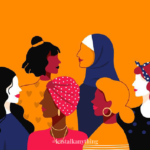Freedom can be understood as the unfettered ability to act, express oneself, and contemplate without encountering hindrance or restriction. It is the absence of a despotic government that often suppresses individual liberties and imposes constraints on various aspects of life, such as speech, movement, and thought. This concept encapsulates the inherent right of individuals to live autonomously, making their own choices and decisions, as long as they do not infringe upon the rights of others.
In essence, freedom is a foundational principle that underpins many democratic societies. It is the bedrock upon which civil liberties are built, fostering an environment where diverse opinions can be freely expressed, and individuality is celebrated. However, it is important to recognize that the exercise of freedom requires a delicate balance, as it must be tempered by a sense of responsibility and respect for the freedoms of others.
Introduction:
In the vast tapestry of human history, few stories are as compelling and poignant as that of India’s quest for freedom. From the shackles of colonialism to the dawn of independence, India’s journey has been marked by courage, resilience, and an unwavering commitment to the ideals of freedom. Today, as we reflect on the significance of freedom in the Indian context, we are reminded of the sacrifices made by countless individuals who dared to dream of a nation liberated from oppression.
The Historical Context:
The struggle for freedom in India began long before the arrival of the British East India Company in the early 17th century. It was a struggle rooted in the rich tapestry of India’s history, characterized by the resistance of indigenous kingdoms against foreign invasions. However, it was the advent of British colonial rule in the 18th century that truly galvanized the Indian people into action.
The Fight for Independence:
The fight for independence was not merely a political struggle; it was a battle for the soul of India. It was a movement that transcended barriers of caste, religion, and language, uniting people from all walks of life in a common quest for freedom. Led by visionary leaders such as Mahatma Gandhi, Jawaharlal Nehru, and Sardar Vallabhbhai Patel, the Indian independence movement adopted nonviolent resistance as its guiding principle, inspiring similar movements around the world.
Independence and Beyond:
On August 15, 1947, India finally achieved its long-awaited independence, marking the end of nearly two centuries of British rule. However, the journey towards freedom did not end there. The newly independent nation faced numerous challenges, including the partition of British India into India and Pakistan, and the task of nation-building in the aftermath of colonialism.
The Legacy of Freedom:
Today, India stands as a beacon of democracy and pluralism in a world often plagued by division and discord. The principles of freedom and equality enshrined in the Constitution of India continue to guide the nation’s progress, ensuring that every citizen has the opportunity to lead a life of dignity and fulfillment.
Conclusion:
As we celebrate India’s journey towards freedom, we are reminded of the importance of cherishing and safeguarding the ideals for which countless individuals sacrificed their lives. The struggle for freedom is not a relic of the past; it is an ongoing journey that requires constant vigilance and commitment. As we look towards the future, let us continue to uphold the values of freedom, democracy, and inclusivity that define the Indian nation.





